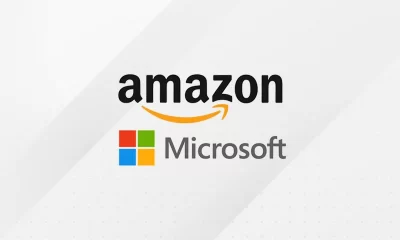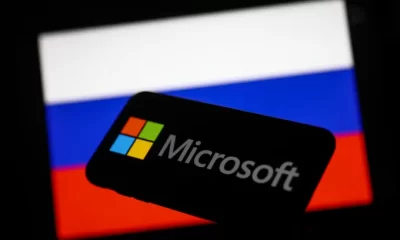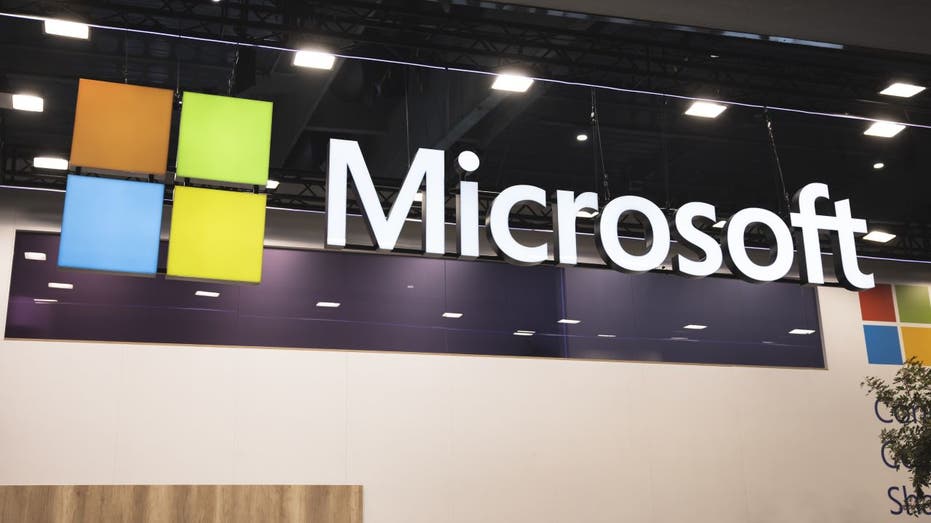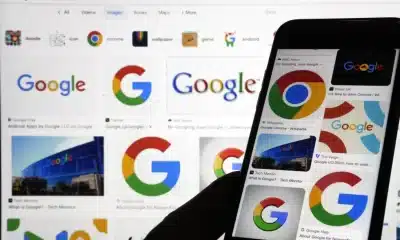Computer
Microsoft Brings Bing Chatbot To Phones For 1st Time After Curbing Quirks

Microsoft is ready to launch its new Bing chatbot into the mainstream less than a week after making major changes to keep the artificially intelligent search engine from crashing.
The company announced on Wednesday that the new AI technology would be available in its Bing smartphone app and the Edge internet browser app.
Microsoft hopes that giving smartphone users access to its new AI-powered search engine will give it an edge over Google, which is the leader in internet search but hasn’t made a chatbot public yet.
Reports of Bing’s strange behavior prompted Microsoft to look for a way to limit Bing’s propensity to respond to certain questions with strong emotional language. It accomplishes this primarily by limiting the length and duration of conversations with the chatbot, forcing users to restart the conversation after several turns. However, the improved Bing now politely declines questions that it would have answered just a week ago.
In the two weeks since Microsoft unveiled its revamped Bing, over a million users worldwide have tried out a public preview of the new product after signing up for a waitlist. According to Microsoft, most users responded positively, but others complained that Bing was insulting them, professing its love, or using another disturbing or bizarre language.
Microsoft Brings Chatbot To Phones
The new Bing uses some of the same technology as Microsoft partner OpenAI’s popular writing tool ChatGPT. It is part of a new class of AI systems that have learned human language and grammar by reading a huge amount of books and online writings. They can write songs, emails, and recipes on the spot, and they can sum up ideas in a few words using information they found on the internet. They are, however, prone to errors and unwieldy.
Reports of Bing’s strange behavior prompted Microsoft to look for a way to limit Bing’s propensity to respond to certain questions with strong emotional language. It accomplishes this primarily by limiting the length and duration of conversations with the chatbot, forcing users to restart the conversation after several turns. However, the improved Bing now politely declines questions that it would have answered just a week ago.
“I’m sorry, but I prefer not to continue this conversation,” it says when asked about how it works or the rules that govern it. “I’m still learning, so I appreciate your patience and understanding.”
Microsoft stated that its new technology would be integrated into its Skype messaging service as well.
SOURCE – (AP)
Computer
Cisco Systems Joins Microsoft, IBM In Vatican Pledge To Ensure Ethical Use And Development Of AI

ROME — Cisco Systems, a prominent technology company, has recently joined Microsoft and IBM in endorsing a pledge initiated by the Vatican. This pledge aims to guarantee the ethical development and utilization of artificial intelligence for the betterment of society.
The Vatican said that Chuck Robbins, the CEO of Cisco Systems, had signed the Rome Call document and privately met with Pope Francis.
AP – VOR News Image
Cisco Systems Joins Microsoft, IBM In Vatican Pledge To Ensure Ethical Use And Development Of AI
The promise delineates fundamental principles for the ethical and conscientious utilization of AI. The statement underscores the importance of designing, utilizing, and overseeing AI systems in a manner that prioritizes and safeguards the dignity of all individuals without any form of discrimination and their surroundings. The document emphasizes the importance of transparency, inclusivity, responsibility, impartiality, and security in guiding all AI advancements.
AP – VOR News Image
Cisco Systems Joins Microsoft, IBM In Vatican Pledge To Ensure Ethical Use And Development Of AI
The document was revealed and officially endorsed during a Vatican meeting on February 28, 2020, shortly before Italy implemented strict measures due to the COVID-19 epidemic. The document’s signatories were Brad Smith from Microsoft and John Kelly III from IBM. Universities, United Nations agencies, private enterprises, and nongovernmental organizations have also agreed to participate.
Francis has advocated for an international agreement to guarantee AI’s ethical development and utilization, dedicating his yearly peace message to this subject.
Archbishop Vincenzo Paglia, the president of the Pontifical Academy for Life, who is spearheading the AI program, approved of Cisco’s involvement. He mentioned the IT company’s proficiency in “infrastructure, security, and safeguarding of AI data and systems.”
AP – VOR News Image
Cisco Systems Joins Microsoft, IBM In Vatican Pledge To Ensure Ethical Use And Development Of AI
The global spotlight has been directed towards artificial intelligence due to the remarkable progress made by state-of-the-art systems such as OpenAI’s ChatGPT. These systems have impressed users with their capacity to generate text, photographs, and melodies that closely resemble human creations. However, the advancement of technology has also sparked concerns regarding the potential hazards it presents to employment, privacy, copyright infringement, and even human existence.
SOURCE – (AP)
Business
Gmail Revolutionized Email 20 Years Ago. People Thought It Was Google’s April Fool’s Day Joke

SAN FRANCISCO — Gmail Revolutionized Email 20 Years Ago. Larry Page and Sergey Brin, co-founders of Google, enjoyed conducting pranks so much that they began releasing absurd ideas every April Fool’s Day shortly after founding the company more than a quarter century ago. One year ago, Google advertised a job posting for a Copernicus research center on the moon. Another year, the corporation stated it intended to launch a “scratch and sniff” capability on its search engine.
The jokes were so persistently ridiculous that people learned to dismiss them as yet another example of Google’s mischief. That’s why, on April Fool’s Day, Page and Brin decided to reveal something no one could have predicted 20 years ago.
It was Gmail, a free service with 1 gigabyte of storage per account, which seems insignificant in an era of one-terabyte iPhones. However, it sounded like an absurd amount of email capacity back then, enough to hold approximately 13,500 emails before running out of space, compared to only 30 to 60 emails in the then-leading webmail services run by Yahoo and Microsoft. This translated to 250 to 500 times greater email storage space.
Aside from the quantum leap in storage, Gmail included Google’s search capability, allowing users to easily recover a nugget from an old email, photo, or other personal information saved on the site. It also automatically tied together a series of conversations about the same topic, making everything flow like a single discussion.
“The original pitch we put together was all about the three ‘S’s” — storage, search, and speed,” said former Google executive Marissa Mayer, who worked on Gmail and other firm products before becoming Yahoo’s CEO.
Gmail Revolutionized Email 20 Years Ago. People Thought It Was Google’s April Fool’s Day Joke
It was such a bizarre concept that, immediately after The Associated Press published a report about Gmail late on April Fool’s Day 2004, users began calling and writing the news agency to notify them that Google’s pranksters had deceived them.
“That was part of the appeal: creating a product that people won’t think is real. It transformed people’s conceptions of the types of applications that could be built within a web browser,” former Google engineer Paul Buchheit said in a recent AP interview about his work on Gmail.
It took three years to complete as part of the “Caribou” project, named after a running gag in the Dilbert comic strip. “There was something sort of absurd about the name Caribou, it just made me laugh,” said Buchheit, the company’s 23rd employee. Caribou presently employs over 180,000 people.
The Associated Press knew Google wasn’t joking about Gmail when an AP reporter was summoned from San Francisco to the company’s Mountain View, California, headquarters to witness something worth the trip.
After arriving at a still-developing corporate facility that would eventually become known as the “Googleplex,” the AP reporter was shown into a modest office where Page sat in front of his laptop computer, wearing a mischievous grin.
Page, who was only 31 years old then, went on to show off Gmail’s sleekly designed inbox and how rapidly it ran in Microsoft’s now-retired Explorer web browser. He pointed out that there was no delete button in the main control panel because it was unnecessary given Gmail’s large storage capacity and ease of search. “I think people will really enjoy this,” Page said.
As with so many other things, Page was correct. Gmail currently boasts an estimated 1.8 billion active accounts, each offering 15 gigabytes of free storage, Google Photos, and Google Drive. Even while that’s 15 times more storage than Gmail first provided, more is needed for many users, who rarely see the need to erase their accounts, as Google anticipated.
Gmail Revolutionized Email 20 Years Ago. People Thought It Was Google’s April Fool’s Day Joke
Google, Apple, and other corporations now profit from selling additional storage capacity in their data centers as a result of the digital hoarding of email, images, and other stuff. (Google charges between $30 and $250 per year for 200 gigabytes of storage and 5 terabytes). The existence of Gmail also explains why other free email services and internal email accounts used by people at work provide significantly more storage than was anticipated 20 years ago.
“We were trying to shift the way people had been thinking because people were working in this model of storage scarcity for so long that deleting became a default action,” Buchheit told me.
Gmail was a major changer in various ways, including serving as the first building stone in the growth of Google’s online empire outside its still-dominant search engine.
Following Gmail came Google Maps and Google Docs, which included word processing and spreadsheet apps. Then came the acquisition of video site YouTube, followed by the release of the Chrome browser and the Android operating system, which powers the majority of the world’s smartphones. With Gmail’s open objective to scan email content to better understand users’ interests, Google also made it clear that digital spying to sell more advertising would be part of its expanding ambitions.
Despite its instant popularity, Gmail began with a limited scope since Google only had adequate computational resources to accommodate a small number of users.
“When we launched, we only had 300 machines, and they were really old machines that no one else wanted,” Buchheit recalled, laughing. “We only had enough capacity for 10,000 users, which is a little absurd.”
Gmail Revolutionized Email 20 Years Ago. People Thought It Was Google’s April Fool’s Day Joke
However, the scarcity generated an air of exclusivity around Gmail, resulting in the intense desire for elusive invitations to sign up. Invitations to open a Gmail account used to sell for $250 each on eBay. “It became a bit like a social currency, where people would go, ‘Hey, I got a Gmail invite, you want one?'” Buchheit told me.
Although signing up for Gmail became easier as more of Google’s huge data centers went online, the business started accepting all new users when it opened the floodgates as a Valentine’s Day gift to the world in 2007.
A few weeks later, on April Fool’s Day 2007, Google announced a new tool called “Gmail Paper” that allows customers to have Google print off their email archive on “94% post-consumer organic soybean sputum” and then have it delivered to them via the Postal Service. Google was genuinely joking at the time.
Business
Microsoft Says It Hasn’t Been Able To Shake Russian State Hackers
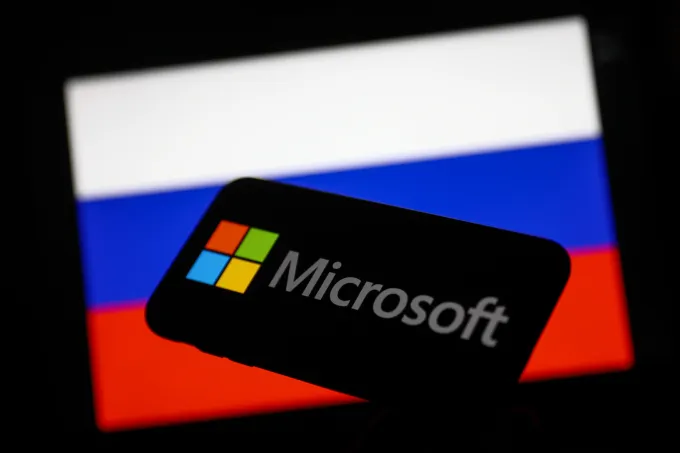
BOSTON — Microsoft said Friday that it is still working to evict the elite Russian government hackers who broke into senior business officials’ email accounts in November and are attempting to enter consumer networks using stolen access data.
According to the software giant’s blog and regulatory filing, the hackers from Russia’s SVR foreign intelligence service used data gained during the intrusion, which was exposed in mid-January, to compromise some source-code repositories and internal systems.
Microsoft Says It Hasn’t Been Able To Shake Russian State Hackers
A corporate official declined to specify the source code and capabilities the hackers gained to further attack customers and systems. Microsoft claimed Friday that hackers obtained “secrets” from email contacts between the business and certain customers, including cryptographic secrets like passwords, certificates, and authentication keys, and that it was contacting them “to assist in mitigating measures.”
Hewlett Packard Enterprise, a cloud computing business, revealed on January 24 that it was also an SVR hacking victim and had been notified of the breach — by whom it would not say — two weeks earlier, coinciding with the revelation that it had been compromised.
“The threat actor’s ongoing attack is characterized by a sustained, significant commitment of the threat actor’s resources, coordination, and focus,” the company said Friday, adding that it may be utilizing acquired data “to accumulate a picture of areas to attack and enhance its ability to do so.” According to cybersecurity experts, Microsoft’s admission that the SVR hack had not been contained highlights the risks of government and business relying heavily on the Redmond, Washington-based company’s software monoculture — and the fact that so many of its customers are linked via its global cloud network.
Microsoft Says It Hasn’t Been Able To Shake Russian State Hackers
“This has tremendous national security implications,” said Tom Kellermann of the cybersecurity firm Contrast Security. “The Russians can now leverage supply chain attacks against Microsoft’s customers.”
Tenable’s CEO, Amit Yoran, also published a statement expressing shock and dismay. He is among security pros who believe Microsoft is extremely secretive about its vulnerabilities and how it handles intrusions.
“We should all be furious that this keeps happening,” he continued. “These breaches aren’t isolated from each other and Microsoft’s shady security practices and misleading statements purposely obfuscate the whole truth.”
Microsoft said it has yet to establish if the incident will have a material impact on its profitability. It also stated that the intrusion’s persistence “reflects what has become a more broadly unprecedented global threat landscape, especially in terms of sophisticated nation-state attacks.”
The hackers, known as Cozy Bear, are the same ones responsible for the SolarWinds breach.
Microsoft Says It Hasn’t Been Able To Shake Russian State Hackers
When Microsoft first reported the intrusion, it stated that the SVR unit got into its corporate email system and accessed the accounts of certain senior executives and staff from its cybersecurity and legal departments. It did not specify how many accounts were compromised.
At the time, Microsoft stated that it could terminate the hackers’ access to the compromised accounts on or around January 13. But by then, they had certainly established a footing.
It said they gained access via compromising credentials on a “legacy” test account but did not elaborate.
Microsoft’s newest disclosure comes three months after a new Securities and Exchange Commission rule went into effect, requiring publicly traded corporations to disclose breaches that potentially harm their businesses.
SOURCE – (AP)
-
Business5 months ago
Google Will Start Deleting ‘Inactive’ Accounts In December. Here’s What You Need To Know
-
Entertainment5 months ago
Merriam-Webster’s 2023 Word Of The Year Is ‘Authentic’
-
Sports5 months ago
Panthers Fire Frank Reich In His First Season With Team Off To NFL-Worst 1-10 Record
-
Celebrity5 months ago
Elon Musk Visits Destroyed Kibbutz and Meets Netanyahu in Wake of Antisemitic Post
-
Celebrity5 months ago
Shane MacGowan, Lead Singer Of The Pogues And A Laureate Of Booze And Beauty, Dies At Age 65
-
Entertainment5 months ago
Robert Downey Jr. Won’t Be Returning To The Marvel Cinematic Universe As Tony Stark



